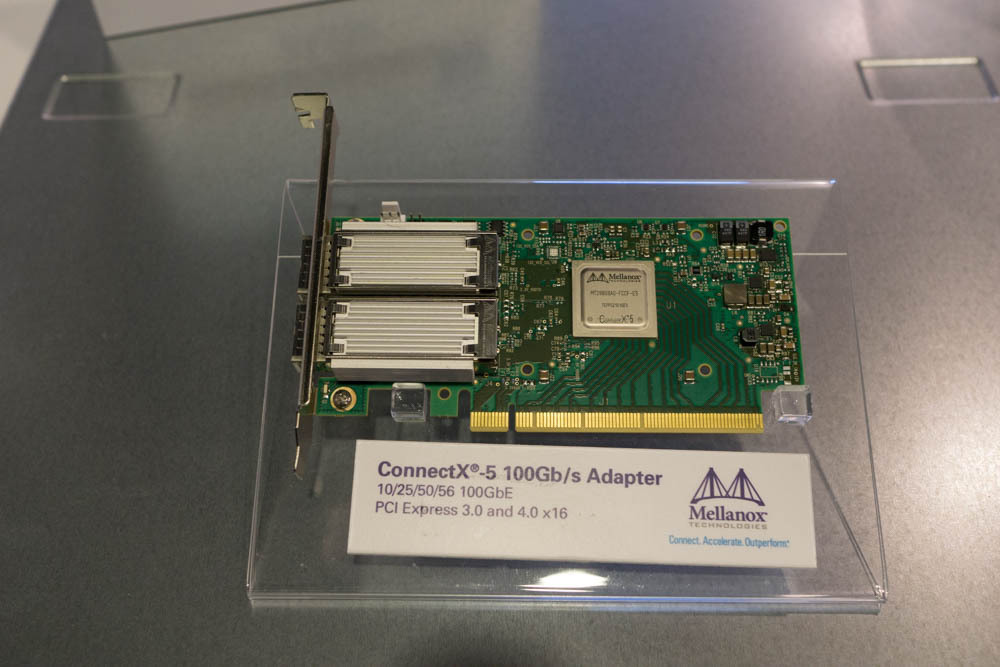PCI Express 4.0 PCI-SIG continues its solid reputation of delivering low cost, high-performance, low-power specifications for multiple applications and markets. O PCI Express 4.0 Specification –(16GT/S). Finalized and published October 2017. Includes new performance enhancements. Maintains position as the interconnect of choice for. This configuration allows 375 W total (1 × 75 W + 2 × 150 W) and will likely be standardized by PCI-SIG with the PCI Express 4.0 standard. The 8-pin PCI Express connector could be confused with the EPS12V connector, which is mainly used for powering SMP and multi-core systems.

The PCI Express 4.0 Timetable Preliminary workshop: Primary purpose is test and specification development. Test results are not required to be shared with device vendors. FYI workshop: Vendors receive pass/fail results but no official integrator’s list. At least 2 FYI workshops are run before official compliance testing begins. The PCI Special Interest Group (PCI-SIG) completed the PCIe 4.0 specification in 2017. Compared to PCIe 3.0, the data transfer rate doubles from 8 GT/s to 16 GT/s and allows a maximum net data rate of around 2 GByte/s per lane. PCIe 4.0 x16 then achieves almost 32 GByte/s. A Gigabyte M.2 PCIe 4.0 SSD can push 5GBps reads and 4.3GBps writes, a hefty increase over PCIe 3.0 drives. It gets even crazier if you run them in RAID 0, which is what Gigabyte did using a PCIe.
wheresmycar
- 1x PCIe 4.0/ 3.0 x16 slot (PCI_E1) 1
- 1x PCIe 3.0 x16 slot (PCI_E3), supports x4 speed 2
- 2x PCIe 3.0 x1 slots
- The supported specification depends on installed processor.
- When installing PCIe SSD in M.2_2, PCI_E3 slot will be unavailable.
Does this mean the graphics card slot 100% supports PCIe 4.0 out of the box?
In reference to 'supported specification depends on installed processor' .... is the Ryzen 3600 fine for 4.0? (not a huge concern, as he's looking to upgrade to a 8-core Zen 3 processor later)
If 20GB VRAM variants (3080) come into existence, are these cards more likely to benefit from 4.0 scaling? The 10GB variant doesn't see much benefit as seen in one of TPUs excellent reviews https://www.techpowerup.com/review/nvidia-geforce-rtx-3080-pci-express-scaling/ hence wondering whether more VRAM means 'considerably' more PCIe bandwidth consumption?
-------------------
Pcie 4.0 Specs
Not sure if the following will help but here's his current build and what he's looking to upgrade:
Pcie Specification 4.0 Pdf Download
CURRENT:CPU: 3600
 MOBO: MSI MPG B550 GAMING PLUS
MOBO: MSI MPG B550 GAMING PLUSRAM: 16GB (2x8) 3600/16
Pcie 4.0 Specification
GPU: older GTX 1070PSU: older 550W unit
Displays: older 1080p 75hz panel + 1080p 60hz
IMPENDING UPGRADES:
RTX 3080 / Next Gen AMD cards (3080 20GB variant if reasonably priced and announced in the coming weeks/month)
750W PSU
Pci_express_base_4.0 Pcie 4.0 Specification 1.0
8-core Zen 3 upgrade (later)
Pcie 4.0 Specification Download
4K 144hz display(he will be using the 4K display for gaming and the 2 1080p displays for multi-tasking)